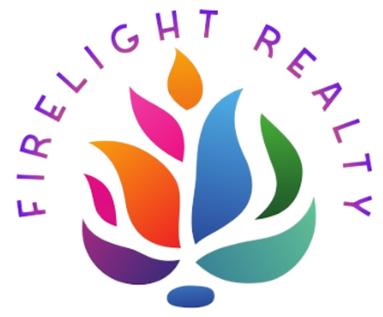Generating real estate leads is the lifeline of any successful real estate agent. For referral agents, the challenge can be even greater due to the reliance on external connections and networks. Today, we’re going to explore 17 proven strategies that can help you generate real estate leads effectively. By the end of this blog, you’ll know how to get real estate leads systematically and efficiently.
Importance of Real Estate Leads for Referral Agents

Real estate leads are crucial because they represent potential clients and transactions. For referral agents, leads are the bread and butter that keep your business thriving. The competitive nature of the real estate market means that having a continuous stream of leads is essential to sustaining and growing your business.
We’ve organized these 17 strategies into categories for easy understanding. Whether you’re leveraging your network, social media, or community involvement, these strategies provide you with actionable steps to generate leads.
1. Leveraging Your Network
Your existing network is a goldmine for leads. Start by reaching out to friends, family, and professional contacts. Personal connections can often lead to warm referrals, making it easier to convert leads into clients.
Tips for Leveraging Your Network:
- Reconnect Regularly: Keep in touch with your network through regular check-ins. A simple message or call can remind them that you’re in the real estate business.
- Ask for Referrals: Don’t hesitate to ask your connections if they know anyone looking to buy or sell property.
- Offer Value: Share helpful real estate tips or market updates to keep your network engaged and informed.
2. Social Media Engagement

Social media platforms are powerful tools for expanding your reach and engaging with potential leads. Use platforms like Facebook, Instagram, and LinkedIn to showcase your expertise and attract followers.
Tips for Social Media Engagement:
- Post Consistently: Regular posts keep your audience engaged and aware of your services.
- Use Hashtags: Incorporate relevant hashtags to increase your visibility to a broader audience.
- Engage with Followers: Respond to comments and messages promptly to build relationships and trust.
3. Content Marketing
Creating valuable content positions you as an industry expert and attracts potential leads. This can include blogs, videos, and infographics that provide actionable insights.
Tips for Content Marketing:
- Blog Regularly: Write blog posts about market trends, buying tips, and other relevant topics.
- Create Videos: Video content is highly engaging and can showcase properties or offer advice.
- Share Infographics: Visual content like infographics can simplify complex information and make it more accessible.
4. Email Marketing Campaigns
Email marketing is an effective way to nurture leads and maintain consistent communication with your network. Design targeted campaigns that provide value and keep your audience engaged.
Tips for Email Marketing:
- Segment Your List: Divide your email list into segments to tailor your messages to different audiences.
- Personalize Emails: Use the recipient’s name and other personal details to make your emails more engaging.
- Include Call-to-Actions: Encourage recipients to take action, whether it’s scheduling a consultation or visiting your website.
5. Partnering with Local Businesses
Building partnerships with local businesses can help you exchange referrals and expand your network. These partnerships can lead to mutual benefits and increased visibility.
Tips for Partnering with Local Businesses:
- Find Complementary Businesses: Partner with businesses that complement your services, such as mortgage brokers or home stagers.
- Offer Mutual Promotions: Promote each other’s services to your respective audiences.
- Collaborate on Events: Host joint events to attract a larger audience and generate leads.
6. Hosting Events

Organizing and hosting events in your community can help you build relationships and generate leads. Events provide a platform for face-to-face interactions and can establish you as a local expert.
Tips for Hosting Events:
- Plan Informative Sessions: Host seminars or workshops on relevant topics like home buying or investment strategies.
- Network Actively: Use events as an opportunity to meet new people and expand your network.
- Follow Up: Collect contact information and follow up with attendees to nurture leads.
7. Optimizing Your Website
Your website is a critical tool for attracting and capturing potential leads. Ensure it’s optimized for user experience and search engines to maximize its effectiveness.
Tips for Website Optimization:
- Improve SEO: Use relevant keywords and optimize your website content for search engines.
- Enhance User Experience: Make sure your website is easy to navigate and mobile-friendly.
- Include Lead Capture Forms: Add forms to capture visitor information and convert them into leads.
8. Using Real Estate Lead Generation Platforms
There are numerous platforms specifically designed to generate real estate leads. These tools can save you time and effort by connecting you with potential clients.
Tips for Using Lead Generation Platforms:
- Choose Reputable Platforms: Research and select platforms known for delivering quality leads.
- Customize Your Profile: Make sure your profile is complete and showcases your expertise.
- Follow Up Promptly: Respond to leads quickly to increase your chances of conversion.
9. Paid Advertising
Paid advertising can significantly boost your lead generation efforts. Platforms like Google Ads and social media ads allow you to target specific audiences effectively.
Tips for Paid Advertising:
- Set Clear Goals: Define what you want to achieve with your ads, such as increasing website traffic or generating leads.
- Target Specific Audiences: Use targeting options to reach your ideal audience.
- Monitor and Adjust: Track the performance of your ads and make adjustments as needed to optimize results.
10. Community Involvement

Being involved in your local community can lead to valuable connections and potential leads. Participate in community events and volunteer activities to increase your visibility.
Tips for Community Involvement:
- Join Local Organizations: Become a member of local business groups or community organizations.
- Volunteer: Volunteer your time for local causes and events.
- Sponsor Events: Sponsor community events to increase your exposure and demonstrate your commitment to the community.
11. Follow-Up Strategies
Effective follow-up is crucial for maintaining engagement with leads and increasing conversion rates. Develop a systematic approach to ensure no lead falls through the cracks.
Tips for Follow-Up Strategies:
- Create a Follow-Up Schedule: Plan regular follow-up contacts, such as calls, emails, or texts.
- Personalize Your Follow-Ups: Tailor your messages to the individual’s needs and interests.
- Track Your Contacts: Use a CRM system to keep track of your interactions and follow-up schedule.
12. Refining Your Elevator Pitch
Your elevator pitch is a quick way to communicate your value and services to potential leads. Crafting a compelling pitch can make a lasting impression and generate interest.
Tips for Refining Your Elevator Pitch:
- Keep It Concise: Aim for a pitch that’s 30 seconds to a minute long.
- Highlight Your Unique Selling Points: Focus on what sets you apart from other agents.
- Practice Regularly: Rehearse your pitch until it feels natural and confident.
13. Utilizing Testimonials and Reviews
Client testimonials and reviews can build trust and attract new leads. Showcase positive feedback to demonstrate your expertise and reliability.
Tips for Utilizing Testimonials:
- Request Reviews: Ask satisfied clients to leave reviews on platforms like Google or Yelp.
- Display Testimonials Prominently: Feature testimonials on your website and marketing materials.
- Share Success Stories: Use detailed success stories to highlight your capabilities and achievements.
14. Monitoring and Adjusting Strategies

Tracking your lead generation efforts is essential for understanding what works and what doesn’t. Use data and analytics to refine your strategies and focus on the most effective tactics.
Tips for Monitoring and Adjusting:
- Use Analytics Tools: Tools like Google Analytics can provide insights into your website traffic and lead generation.
- Track Key Metrics: Monitor metrics such as conversion rates, lead sources, and engagement levels.
- Adjust Based on Performance: Make data-driven adjustments to improve your strategies continuously.
15. Referral Program Development
Creating a referral program can encourage past clients and network contacts to refer new leads. Incentives can motivate people to spread the word about your services.
Tips for Developing a Referral Program:
- Offer Attractive Incentives: Provide rewards for successful referrals, such as gift cards or discounts.
- Promote Your Program: Make sure your network is aware of the referral program through emails and social media.
- Track Referrals: Use a system to track referrals and ensure rewards are distributed promptly.
16. Personal Branding and Differentiation
Building a strong personal brand can help you stand out in the real estate industry. A unique and consistent brand can attract more leads and establish trust.
Tips for Personal Branding:
- Define Your Brand: Identify your unique selling points and what makes you different.
- Maintain Consistency: Use consistent branding across all your marketing channels.
- Showcase Your Expertise: Highlight your knowledge and experience through content and client interactions.
17. Networking and Relationship Building

Networking plays a vital role in real estate lead generation. Building strong relationships can lead to referrals and valuable connections within the industry.
Tips for Networking and Relationship Building:
- Attend Industry Events: Participate in real estate conferences, seminars, and meetups to connect with peers and potential clients.
- Engage on Social Media: Use platforms like LinkedIn to network with other professionals and share insights about the market.
- Follow Up with Contacts: After meeting new people, send follow-up messages to maintain the connection and explore collaboration opportunities.
Conclusion
Generating real estate leads as a referral agent requires a mix of strategies and consistent effort. By implementing these 17 ways on how to generate real estate leads, you can build a robust pipeline of potential clients. Remember, the key is to stay proactive, engage with your network, and continuously refine your strategies.
Frequently Asked Questions
How can I effectively generate real estate leads?
Generating real estate leads can be achieved through a combination of strategies such as leveraging social media, attending networking events, utilizing paid advertising, and creating a referral program. It’s essential to be proactive and consistently engage with potential clients to maintain interest and build relationships.
What are some low-cost methods for generating leads?
Involvement in community events, volunteering, and maximizing organic social media presence are effective low-cost methods to generate leads. Additionally, cultivating strong relationships with existing clients can encourage referrals without significant financial investment.
Should I focus on online or offline lead generation?
A balanced approach that includes both online and offline strategies is often most effective. While online methods like social media and email campaigns can reach a wider audience, offline strategies such as local networking and community involvement help foster genuine relationships.
How often should I follow up with leads?
Following up with leads should be done systematically, with an initial follow-up within 24-48 hours, followed by regular contact based on their responses and interests. Establishing a follow-up schedule helps keep leads engaged without overwhelming them. Overall, the frequency of follow-ups may vary depending on individual leads and their needs.
How can I track the success of my lead generation efforts?
Tracking key metrics such as conversion rates, lead sources, and engagement levels is crucial in understanding the effectiveness of your lead generation strategies. Tools like Google Analytics can provide insights into website traffic, while CRM systems can help monitor interactions and follow-up schedules with potential clients.
What should I do if a lead is not responding?
If a lead is not responding, it’s essential to continue following up within reasonable intervals without being pushy. You may also consider changing your communication approach or offering alternative ways for them to engage with you, such as through social media or email. If all else fails, it may be best to move on and focus on other potential leads. Overall, persistence and patience are key in lead generation efforts.
Recently Featured Firelight Realty Posts
Referral-Only Real Estate: Succeeding Without MLS Fees
Mastering Referral Exchanges to Boost Your Real Estate Business
Discover 10 Benefits of Earning a Referral Commission
10 Reasons Why Referral Fee Real Estate is the Best Move for Agents
Unlocking the Potential of a Referral Real Estate Agent Career
Mastering Success as a Real Estate Referral Agent in Today’s Market



